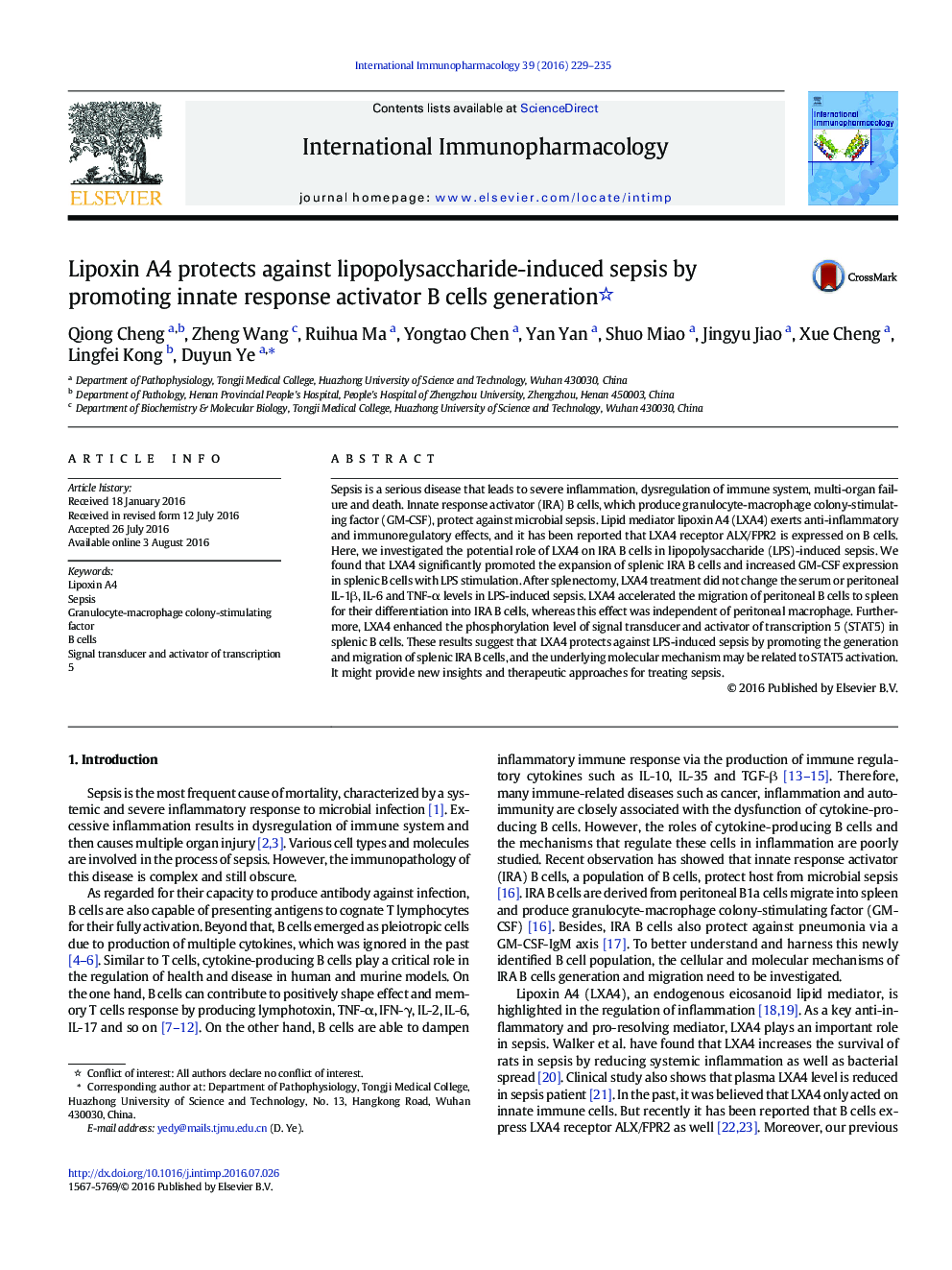| Article ID | Journal | Published Year | Pages | File Type |
|---|---|---|---|---|
| 2540211 | International Immunopharmacology | 2016 | 7 Pages |
•A novel pathway for LXA4 protection against LPS-induced sepsis•LXA4 promotes the expansion and migration of IRA B cells in the spleen.•LXA4 promotes IRA B cells generation involving STAT5 activation.
Sepsis is a serious disease that leads to severe inflammation, dysregulation of immune system, multi-organ failure and death. Innate response activator (IRA) B cells, which produce granulocyte-macrophage colony-stimulating factor (GM-CSF), protect against microbial sepsis. Lipid mediator lipoxin A4 (LXA4) exerts anti-inflammatory and immunoregulatory effects, and it has been reported that LXA4 receptor ALX/FPR2 is expressed on B cells. Here, we investigated the potential role of LXA4 on IRA B cells in lipopolysaccharide (LPS)-induced sepsis. We found that LXA4 significantly promoted the expansion of splenic IRA B cells and increased GM-CSF expression in splenic B cells with LPS stimulation. After splenectomy, LXA4 treatment did not change the serum or peritoneal IL-1β, IL-6 and TNF-α levels in LPS-induced sepsis. LXA4 accelerated the migration of peritoneal B cells to spleen for their differentiation into IRA B cells, whereas this effect was independent of peritoneal macrophage. Furthermore, LXA4 enhanced the phosphorylation level of signal transducer and activator of transcription 5 (STAT5) in splenic B cells. These results suggest that LXA4 protects against LPS-induced sepsis by promoting the generation and migration of splenic IRA B cells, and the underlying molecular mechanism may be related to STAT5 activation. It might provide new insights and therapeutic approaches for treating sepsis.
